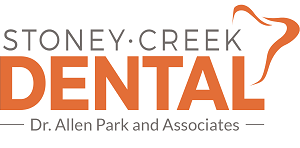
Posted on November 21, 2025
If you’ve been researching the cost of dental implants in Stoney Creek, you’ve likely noticed that prices can vary widely—and many clinics hesitate to post specific numbers online. While that can be frustrating as a patient, there’s a good reason for it: every implant case is unique, and the final cost depends heavily on your oral health, your bone structure, and the type of restoration you need.
At Stoney Creek Dental, our goal is to give you clear, transparent information so you can feel confident and informed before booking your consultation. This guide breaks down the key elements that influence dental implant pricing in Ontario, what insurance may cover, and how financing options can make treatment more manageable.
Let’s dive in.
Is Dental Implant Surgery Worth the Investment?
For most patients, the answer is a resounding yes.
Dental implants are one of the most durable and natural-feeling tooth replacement options available. Unlike bridges or dentures, implants:
- fuse directly with your jawbone
- preserve bone density
- maintain your facial structure
- restore full chewing function
- support long-term oral stability
Because implants last significantly longer than other solutions—and often outlast them entirely—they can actually become more cost-effective over time.
Patients are often surprised to learn that implants can help prevent future dental issues, such as shifting teeth, bone loss, or bite problems, which can lead to additional restorative costs down the road. That long-term value is a major reason they remain the gold standard for tooth replacement.
Key Factors That Influence Implant Pricing
While patients searching for dental implant pricing in Ontario often want a straightforward answer, the final treatment plan depends on several clinical and material considerations. Here are the most common factors that impact cost.
The Need for Bone Grafting or Sinus Lifts
If you’ve been missing a tooth for a long time—or if the tooth was removed years ago—the bone in that area may have shrunk. Dental implants require a certain level of bone density for stability.
In these cases, your dentist may recommend:
- Bone grafting to rebuild the jawbone
- Sinus lift to add bone height in the upper jaw
These supportive procedures help ensure your implant integrates successfully. They also contribute to the overall treatment time, as healing is required before the implant post can be placed. Not every patient needs bone grafting, but it is a common factor in determining final cost.
Material Quality (Titanium vs. Zirconia)
Implants are typically made from:
- Titanium — the long-standing, clinically proven material
- Zirconia — a metal-free, ceramic alternative
Titanium implants are widely used, highly durable, and compatible with most patients. Zirconia implants, while also effective, are newer and may be chosen for aesthetic or biocompatibility reasons. The material selected can influence the cost, as zirconia implants and their components may come at a higher price point due to manufacturing complexity.
Your dentist will evaluate your needs, gum health, and cosmetic goals before recommending a type.
Single Tooth vs. All-on-4 Restorations
Implant costs depend significantly on how many implants are needed.
Single Tooth Implant - This replaces one missing tooth with one implant and one crown. It’s the most straightforward option and typically has the lowest overall treatment cost, though it varies depending on bone quality and location.
All-on-4 or Full-Arch Implant Systems - For patients missing most or all of their teeth, multiple implants can support an entire arch of fixed teeth. These treatments involve:
- surgical planning
- multiple implants
- temporary and permanent prosthetics
- complex lab work
Because of this, they fall at the higher end of typical implant cost ranges. However, for full-mouth restorations, they remain an exceptionally strong, long-term investment.

Does Dental Insurance Cover Implants in Ontario?
Many patients are unsure where dental implants fit within their insurance benefits. While every plan is different, here are common scenarios:
- Some plans cover a portion of implant surgery, usually under major restorative services.
- Some cover the crown or prosthetic, but not the implant post.
- Some exclude implants entirely, covering dentures or bridges instead.
- Some allow “equivalent benefit” coverage, meaning they reimburse the amount they would have paid for a bridge.
Dental implant insurance coverage in Ontario continues to evolve, and more employers are recognizing the long-term value of implant care.
OHIP does not cover dental implants, as it does not include most dental procedures for adults.
At Stoney Creek Dental, we provide detailed estimates with procedure codes that align with the Ontario Dental Association (ODA) Fee Guide, so you can submit accurate information to your insurance provider.
Financing Your Smile at Stoney Creek Dental
Since implants offer such significant long-term benefits, many patients want to move ahead but are understandably concerned about affordability.
Stoney Creek Dental proudly offers:
- Flexible financing plans
- Monthly payment options
- Treatment staging, when clinically appropriate
Financing dental surgery is increasingly common, and our team helps patients choose solutions that fit their budget. We’ll walk you through all available options during your consultation.
Frequently Asked Questions
Ready to Learn Your Personalized Treatment Cost?
Dental implants are one of the most transformative treatments available—restoring your confidence, your ability to eat comfortably, and your long-term oral health.
If you're exploring the cost of dental implants in Hamilton or Stoney Creek, the next step is easy:
Get a personalized quote—Schedule your implant consultation today.
